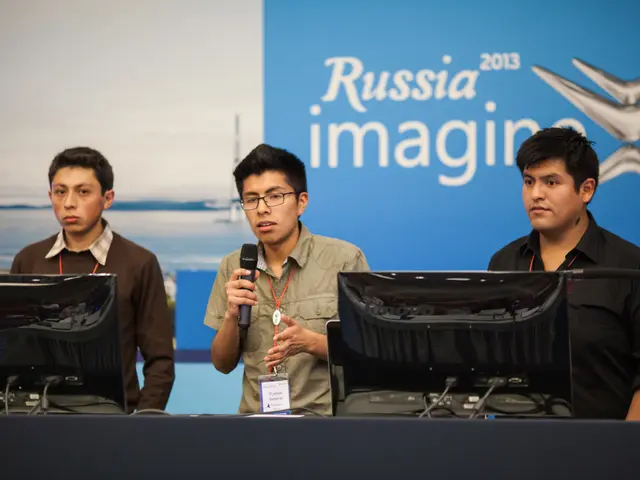Was the past truly superior, or was it merely perceived as such?
In the political landscape of Germany, a significant change has emerged under the leadership of Friedrich Merz, who assumed the chancellorship in 2025. This change, marked by a more assertive stance towards Western alliances and a focus on defense and reforms, stands in stark contrast to the cautious pragmatism of Angela Merkel's tenure, particularly in 2018.
Merz's government has prioritised distancing Germany from Chinese influence and strengthening ties with the United States and NATO, reshaping Europe's geopolitical posture more assertively than before. This shift has been accompanied by plans to increase defense spending, aiming to build Europe’s strongest conventional army, in response to new security challenges such as the Ukraine war.
Economically, Merz's government has launched programs to encourage investment and aims for structural reforms in social security systems—health, welfare, and pensions—that previous governments struggled to advance. However, these ambitious plans face challenges, including economic vulnerability from external shocks, such as trade tensions with the U.S., and a precarious parliamentary majority.
Politically, Merz's leadership has been marked by coalition tensions and political crises, echoing past challenges in German governance. Despite attempts to establish a more stable coalition foundation, internal disputes and ongoing negotiations on court appointments and policy differences within his coalition indicate fragile internal cohesion.
It is important to note that Merz's election in 2025 was narrow, reflecting a divided parliament and electorate. This contrasts with the broader political stability under Merkel’s earlier years and the SPD-led governments before him.
In 2018, Germany was led by Angela Merkel, whose style was marked by consensus-building and a more balanced foreign policy between the U.S., China, and Russia. Merkel's tenure was relatively stable despite rising right-wing populism. Merz’s leadership since 2025 marks a shift towards a more polarized and dynamic political environment.
Meanwhile, the AfD, a right-wing party, has seen a rise in popularity, sometimes level with the CDU at 25 percent. The party's strategic declaration of the Nazis as socialists, despite the name National-SOZIALists, has sparked controversy.
Elsewhere in German politics, the SPD is currently divided in different directions, and the Jusos, the youth wing of the SPD, have announced strong resistance to the planned conscription law. The CSU is campaigning against a potential judge candidate, Brosius-Gersdorf, and is considering completely new candidates.
In conclusion, Merz's leadership brings a decisive strategic shift with stronger Western alignment, defense focus, and reform ambitions. However, it faces challenges of political instability, coalition fragility, and economic uncertainties—dynamics that differ markedly from the relative steadiness seen in 2018 under Merkel and the preceding years. The cliché of general agreement that everything was better in the past should be consumed with caution, as a clear definition of the time period in question is necessary for a reliable claim.
- The Commission, under the guidance of the new leadership, has been asked to submit a proposal for a directive on the protection of workers from the risks related to exposure to ionizing radiation, given the focus on defense and reforms in the health and wellness sector under Friedrich Merz's administration.
- The shift in German politics under Merz's leadership has generated general-news headlines, as it stands in stark contrast to the cautious pragmatism of Angela Merkel's tenure, especially in 2018, and has sparked debates on mental-health issues, such as the impact of political instability on the populace.
- Amidst the political tensions and coalitional fragility under Merz's government, science and research communities are closely monitoring developments, particularly those that may influence the country's stance on international collaborations and scientific advancements.




